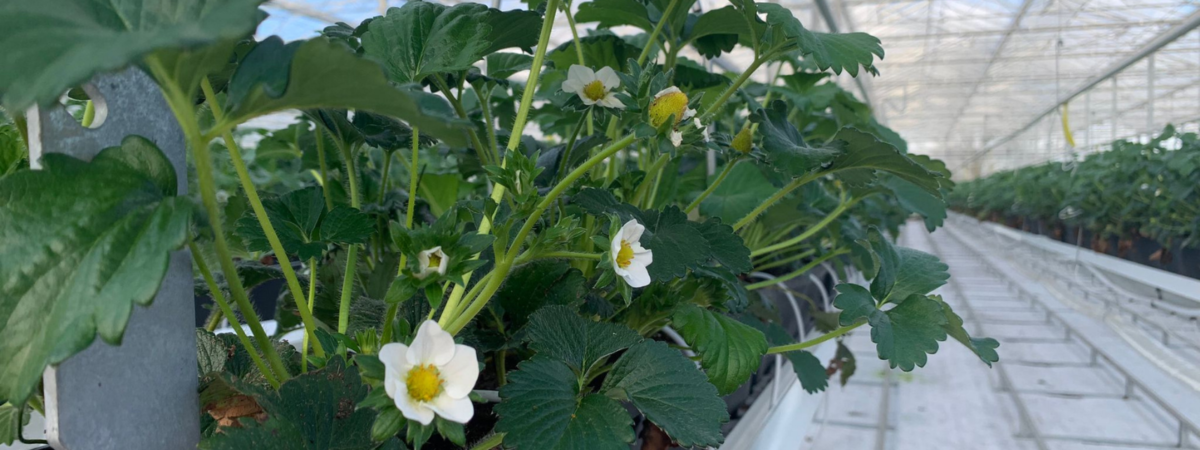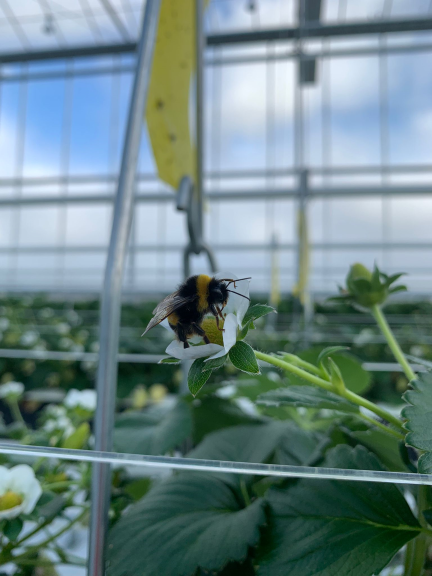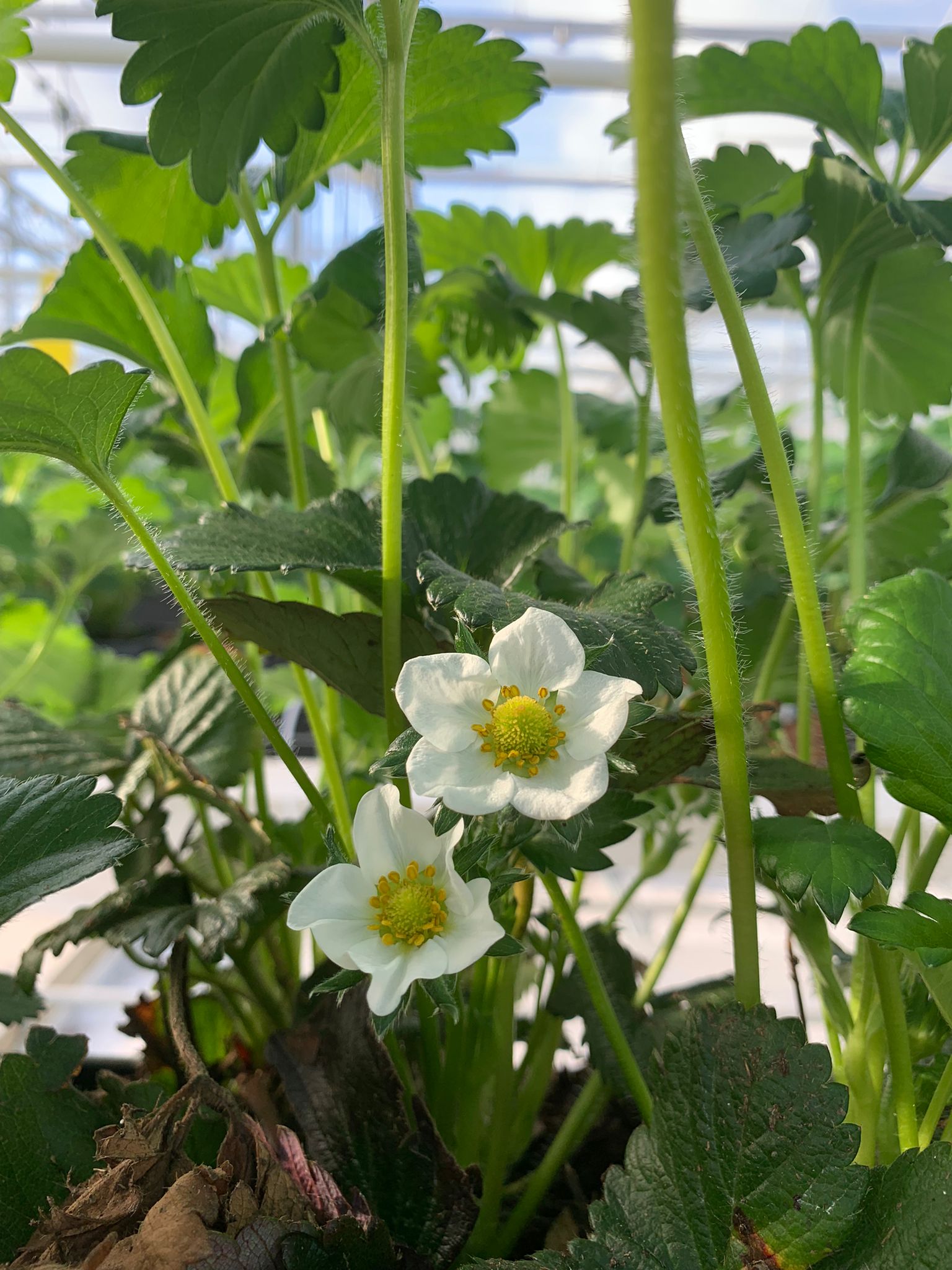Our spring crop is flourishing at the Glasshouse
This is the third crop of strawberries to be grown at our glasshouse in Carrington. We currently have two batches of crop in progress, with the area planted in December now entering the flowering stage.
Pollinating strawberry plants is what triggers strawberry development, as each flower on the plant turns into an individual strawberry. As the first flowers open, we introduce bees, which are crucial to the eventual shape and quality of the fruit.
Beehives are positioned evenly throughout the glasshouse so that each flower is pollinated equally, to produce a beautiful shape and delicious taste. Each hive box comes with its own Queen, so the bees naturally return to their own hive at the end of each feed. This also means that if the bees ever need to be moved or protected they can; a special door allows them to return home, but not back out of their hive until the door is re-opened.
We use Bumble bees as they are excellent pollinators as well as being naturally docile and friendly, meaning our glasshouse team don’t need to worry about a sting.
The team are also currently busy ‘truss teasing’. This is where individual trusses which bear flowers (and eventually strawberries) are gently pulled from inside the crop to rest on the crop supports away from the leaves. As the strawberry fruit develops, it will naturally move downward, making picking 50% quicker rather than searching through the plant. It also allows the glasshouse team to have clear visibility of the plant and its progress towards perfect ripeness.
This latest flush will be ready to be picked by hand at the end of March.
A critical part of Dyson Farming’s sustainable circular farming approach, the glasshouse uses advanced technology to maintain optimal growing conditions to be able to grow British strawberries at a time of year when traditionally it is too dark and cold, avoiding unnecessary food miles. It is powered with renewable electricity and surplus heat from Dyson Farming’s adjacent anaerobic digester (AD), where cut strawberry plant leaves are stored and spread with solid digestate to fertilise the surrounding farmland. Rainwater is also harvested from the roof and used to water the plants.
The Estate Office,
Cyclone Way, Nocton,
Lincoln LN4 2GR




